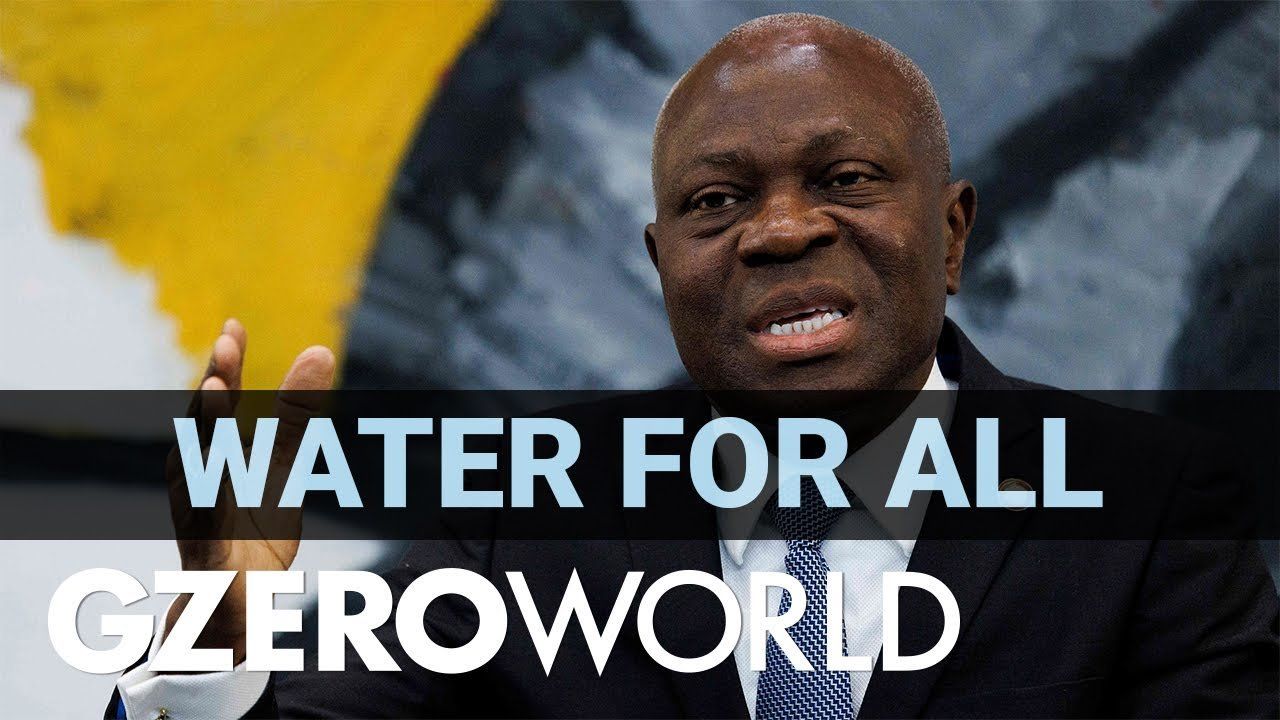GZERO World Clips
Water isn’t “free” - but it shouldn’t be private

Water isn’t “free” - but it shouldn’t be private | GZERO World

UN-Water Chair Gilbert Houngbo remembers being a college student in the late 70s, when people first started saying water should be treated as a public good. Today, we're still having that same conversation, but now, groups like UN-Water are working to make it a reality.
On GZERO World with Ian Bremmer, Houngbo emphasizes the importance of policies that ensure access to basic water services, encourage water reuse, and minimize the risk of pollution. It's easy to think water is free and we don't need to take care of it, says Houngbo, "but this has to stop."
The former Prime Minister of Togo also touches on "the sensitive issue of privatization of water services" and the potential impact it can have on "inequality and efficiency." Well-managed water services are a good thing, Houngbo notes, but privatization shouldn't mean the price of water automatically goes up.
Despite the double-edged sword of privatization, he suggests that it "can be effective if accompanied by government regulations" to ensure that vulnerable populations have access to water and that private companies adhere to quality and safety standards.
Watch the GZERO World episode: The uncomfortable truth about water scarcity
Somewhere in the Donbas region, Ukrainian soldier Artem Bondarenko says he hasn’t slept through the night in months as he defends Eastern Ukraine.
In the latest episode of Vladimir Putin and Xi Jinping's hit wellness podcast This Authoritarian Life, we learn how positive communication patterns can break negative cycles in our relationships -- especially our relationships with Iran, Syria, Venezuela, and Cuba. #PUPPETREGIME
Israel indirectly warned Lebanon that it would strike its northern neighbor hard if the Iran-backed militia group Hezbollah gets involved in any future US-Iran conflict, two Lebanese officials told Reuters.